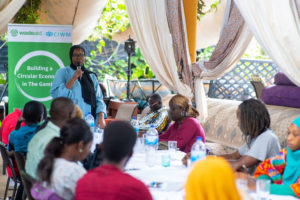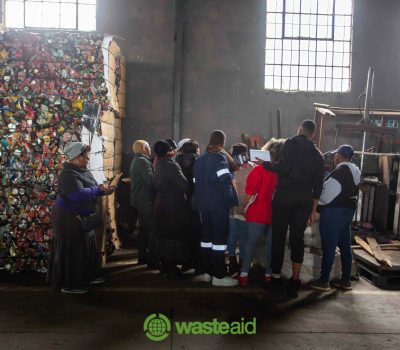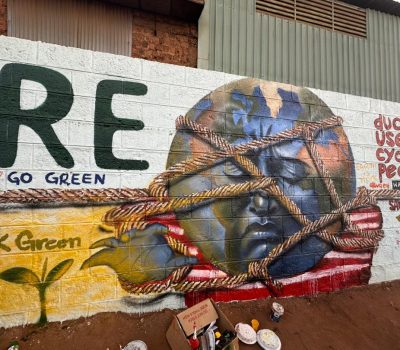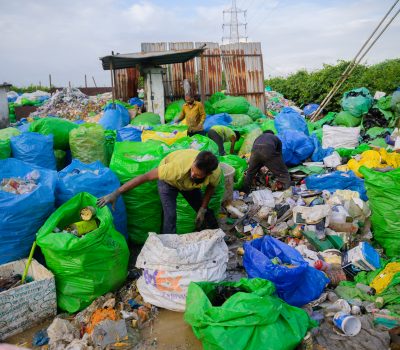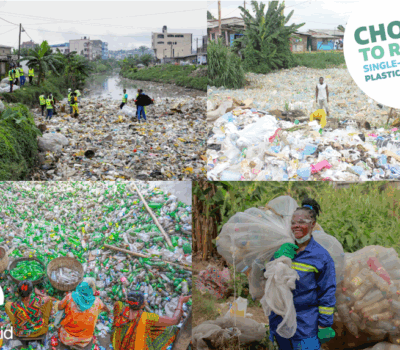Knowledge Sharing for Climate Action.
News, Thought Pieces,
Author: Admin
Published: 11 November 2022
Yesterday’s themes at COP27 were Science and Youth and Future Generations. Two of the elements discussed during the day were around improving Africa’s resilience to climate change and the role of research, development and innovation in addressing climate change.
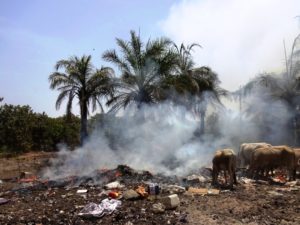
WasteAid agrees knowledge exchange is critical. One area we are experimenting with is bringing experts together from the global north and south to solve common waste issues. In The Gambia, WasteAid, funded by the Chartered Institutions of Wastes Management (CIWM), has set up The Circular Economy Network Project, known locally as ‘Dennakuwo’ to fast-track local solutions to the circular economy. A key part of this project is to bring together members of CIWM in the UK, many of whom come from municipal councils as well as the private sector with their counter parts in The Gambia. In November we held our first virtual engagement meeting bringing together the head of Kanifing Municipal Council and 15 members of CIWM on a virtual platform to exchange information and challenges around the implementation of anti-littering law. It is clear that the challenges faced in the UK are not that dissimilar to those faced in the The Gambia. Our hope is to see these fora to enable knowledge to be shared and innovative solutions to emerge.
Enabling knowledge exchange across the value chain is also critical. In Egypt WasteAid is working with Dow on its REFLEX project, to identify new and emerging ways of valorising flexible plastic. The aim is to support the development of the flexible plastics value chain in Aswan. In September we brought together representatives from the informal sector, the governate, environmental affairs, NGOs and producers in Aswan. The different groups were able to bring their knowledge on the challenges and opportunities on the PE value chain, each bringing a unique perspective. Through these interactions, connections have been formed and a more formal stakeholder group has emerged to help plan and move forward together to ensure increased recovery or secondary materials.
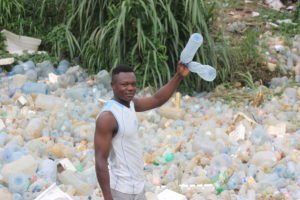
Circular economy provides great economic opportunities to preserve the value of materials and develop critical skills. The examples above demonstrate how we think knowledge exchange is central to solving issues caused by climate emissions that come from materials.
Written by Rebecca Colley-Jones and Michelle Wilson.

